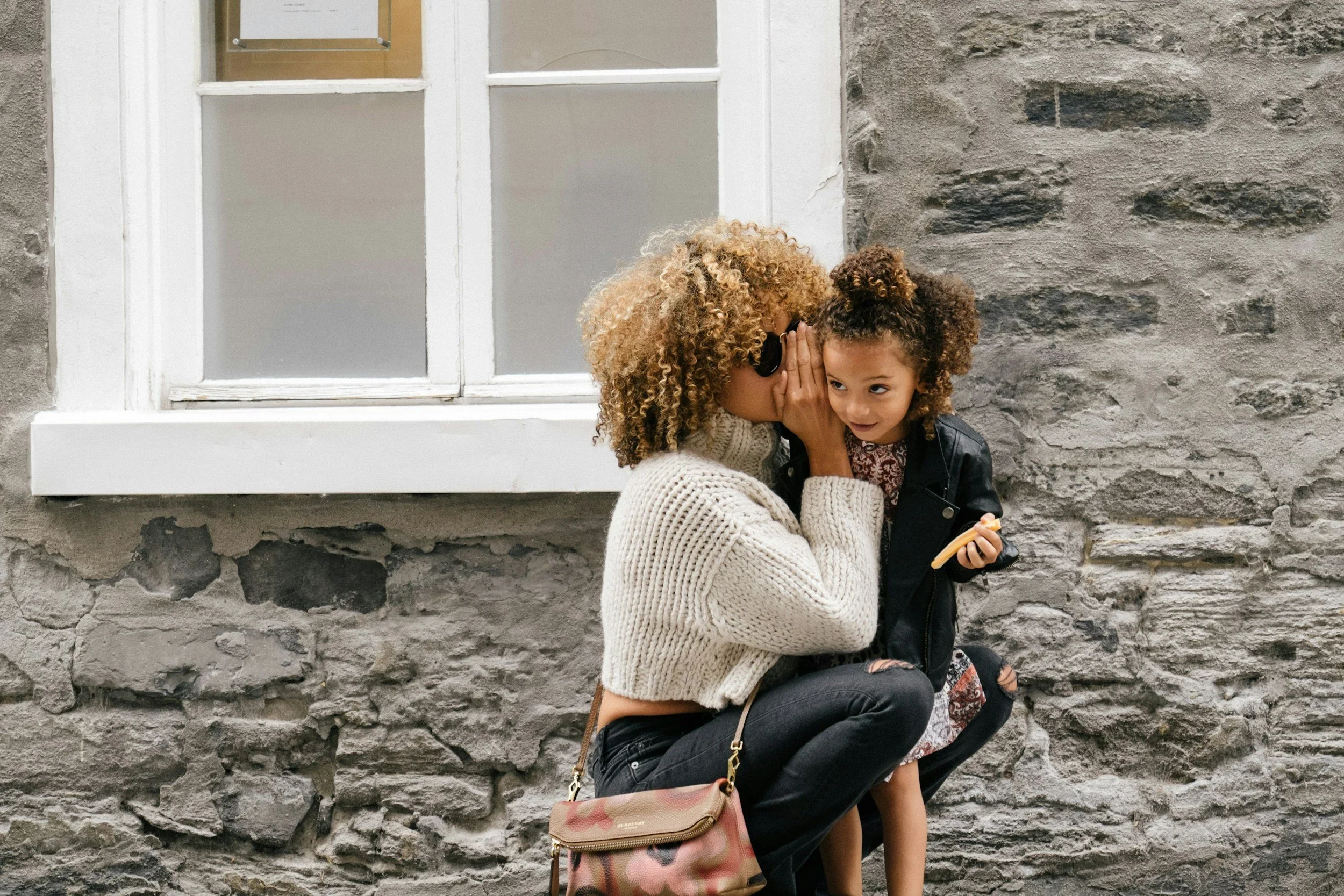How Do I Come Out to My Children? A Real Talk Guide for Parents Coming Out Later in Life
by Nita Agustin
So, you're sitting with this big truth about yourself. Maybe you've known it for a while, maybe it's still new. Either way, you're asking the big, scary question: How do I come out to my children?
First, deep breath. You're not alone in this.
Coming out later in life can really shake things up. You’ve likely already worked through feelings like guilt, shame, or fear. And now you're thinking, “Okay, I’ve done some of the inner work. But what now? How do I come out to my children, the people who know me so well, but maybe not this part of me?”
It’s a big deal. And it’s okay if it feels that way.
How Do I Come Out to My Children? Let’s Start with the Hard Stuff
Coming out is personal. There’s no single way to do it, and no magic script. But I’ve walked alongside many queer and trans folks (and done this myself), so I want to offer some thoughts that might help.
Let’s talk about Lisa. She’s a mom of three: 10, 17, and 22. She’s been wondering for years if she might be gay. After a lot of inner work, she feels ready to live more truthfully. But she’s terrified: “Is this just a phase?” “What if I ruin my family?”
Sound familiar?
Coming out to your kids can feel like opening your heart and hoping it won’t get hurt.
You’re letting them see you in a new light, and you can’t control how they’ll respond. That’s the hard part.
What they say, how they react, it matters. A lot.
I still remember how nervewrecking it was coming out to my own family and friends.
My hands were shaking. My voice cracked. I thought they would completely disown me!
Some people took it well. Others didn’t. Some relationships changed forever.
So yeah. I get why “how do I come out to my children?” feels like a loaded question.
Things to Keep in Mind Before You Come Out to Your Kids
Here’s the thing: there’s no perfect moment. But there are some things that can make the conversation feel safer and more grounded, for you and for them.
7 Things to Think About First
Make sure you’re ready.
You don’t need to have everything figured out, but it helps to feel solid enough in your truth. If you’re still early in your exploration, maybe wait until you’ve got more clarity or support around you.Pick a private, quiet space.
Avoid sharing this at a busy dinner or right before school drop-off. Choose a time when everyone can breathe, listen, and talk freely.Leave room for follow-up.
If your kids are visiting for the weekend, tell them on Saturday, not five minutes before they head back to the other parent’s house.
Make sure to leave some space for everyone involved to have some time to digest the information, and possibly regroup.Write down what you want to say.
Nervous? That’s totally normal. Writing it down helps organize your thoughts. You could even practice with a friend or therapist first.Be ready for a range of reactions.
Some kids will say, “Cool.” Others might cry, ask a ton of questions, or need time. All of that is okay. Let them feel what they feel.Offer them support too.
Just like you needed time and support to understand yourself, your kids might too. A counselor, trusted adult, or even a good book (like Daddy’s Roommate by Michael Willhoite) can help.Talk about stereotypes.
Kids (and adults!) pick up weird messages from the world. Tell them, “Not all gay/lesbian/trans people are the same. This doesn’t mean I’m suddenly a different person. Some parts of me are staying exactly the same and now we are getting to know this new(ish) parts of me”
Watch for Social Conditioning
A lot of us, especially women and moms, are taught to keep everyone around us happy. We’re expected to put others first, no matter the cost. So when you finally come out, that guilt can hit hard.
But here’s the truth: your kids want you to be happy. Just like you want that for them.
Coming out might feel like you're flipping their world upside down. And in some ways, you are. But you’re also giving them a gift: permission to live honestly.
That’s powerful!
After You Come Out: What’s Next?
Okay, so you’ve told them. Now what?
Well…they might need time. Some will want to talk right away. Others might go quiet. Some might say, “I always knew.” (That’s what my mom and sister said to me.)
The key is: don’t rush it.
Kids (and adults) process things in their own time. This isn’t a one-off conversation!
It’s the start of an ongoing, evolving conversation.
Keep the door open.
And don’t make every moment about your coming out. Let your kids steer some of the conversations, too. In most cases, kids may have tons of questions and curiosities.
Let their interest guide your convo.
Be present, not pushy.
What If They Don’t Take It Well?
I won’t sugarcoat it, some kids struggle. Especially if they’ve grown up around negative messages about LGBTQ+ folks.
Before you come out, listen to the kinds of conversations your kids have. Do they make space for queer people? Do they ask questions or make jokes? That might give you a hint about how they’ll respond.
But even if their first reaction isn’t ideal, it doesn’t mean they won’t come around. This is big news. Let them feel it out.
And if things do get rocky? That’s not a reflection of your worth. You’re still a good parent. You’re still worthy of love.
Last Thoughts: You’re Not Alone
If you’ve made it this far, you’re probably still wondering, How do I come out to my children? And that’s okay.
Coming out to your kids isn’t easy. But you can do it with care, honesty, and love.
You don’t need to be perfect. You just need to be real.
And remember, this isn’t just about what you say, it’s about how you keep showing up after. Your kids might not understand everything right away. But they’ll see your love. They’ll feel your consistency. And that matters more than you think.
If you’re looking for support or just someone to talk things through with, I so welcome you to reach out [link: https://nitaagustincounselling.janeapp.com/]
This journey can feel lonely, but it doesn’t have to be.
You’re not broken. You’re not too late. You’re right on time.
Nita Agustin (they/them) is a queer, neuro-affirming therapist based in Burnaby, BC. They often walk with folks who feel overwhelmed with big realizations “later than expected” about their identity, relationships, or what they actually want out of life. Whether you’re untangling cultural scripts or just figuring yourself out, Nita brings warmth, humour, and real-life experience to the journey. Their favourite part? Watching people breathe easier as they feel more confident living in their own skin.


